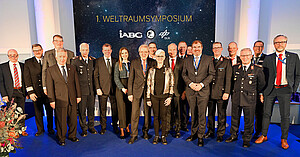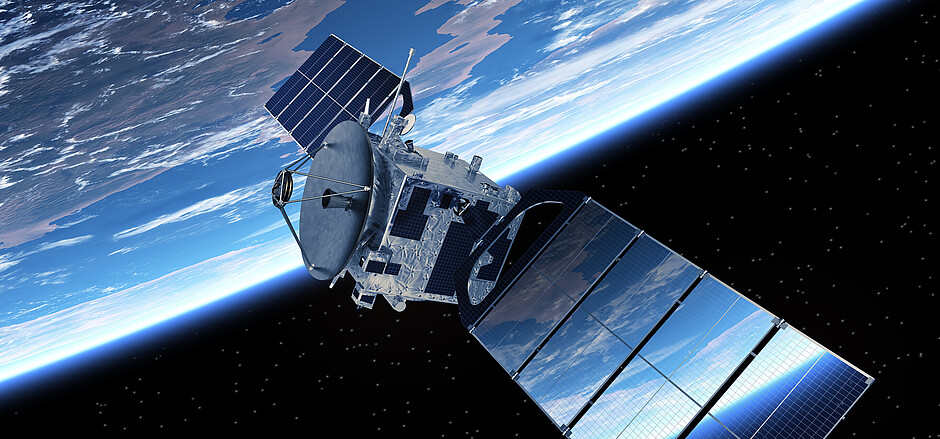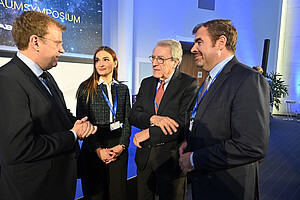The scale of the problem is enormous. A failure of the satellite systems could throw Germany back into the digital Stone Age within a very short space of time. Not only the internet and communication would be affected, but also vital infrastructure such as the electricity and water supply. Pelin Afat, Head of Sales at IABG: "In space, our protection mechanisms are lagging behind technological developments. But society and politicians are still suppressing these dangers. Yet it is clear that other countries have already developed technologies to disrupt or destroy satellites, some of which have already been deployed."
Germany faces a paradox: on the one hand, the country has an excellent technological basis with cutting-edge research, a powerful industry and innovative start-ups in the space sector, but on the other hand, it lags far behind when it comes to investing in space security. Not only world-leading nations such as the USA, China and Russia are investing many times more, but European partners such as France and the UK have also recognized the strategic importance of space earlier.
Dr. Reinhard Brandl, MdB (CSU), Pelin Afat, Prof. Dr. Rudolf F. Schwarz, IABG and Florian Hahn, MdB (CSU)
"Space is more than just a prestige or economic factor, it has become the key to national security," emphasizes Pelin Afat. Like other experts, she argues that the topic of space security should in future be assigned to the Federal Chancellery instead of the Ministry of Economic Affairs, as has been the case to date: "We need a national and cross-departmental strategy to adequately cover this increasingly important area."
Germany's blind spot in space
In view of the changing geopolitical situation and the growing importance of satellite-based transmission channels, time is of the essence. Dr. Karsten Deiseroth, Head of IABG's Defence & Security division: "Germany must be able to generate a permanent situational picture of what is happening in space in order to be able to make sovereign judgments in the event of incidents. In addition, Germany must also have the option of being able to replace satellite systems in space at short notice in the event of an attack."
Former Lieutenant General Klaus Habersetzer, President of IDLw e.V., emphasizes the crucial role of space for our national security: "However, near-Earth space is also a military operational area and has its own military dimension. Key capabilities include space-based early warning and reconnaissance as well as satellite-based communication as the basis for the successful conduct of military operations. Anti-satellite weapons have already been successfully tested several times and are a reality. Approaches and even docking and manipulating satellites are serious threats. The space domain therefore plays a very important role in our national security."
Security expert Afat warns of the loss of important infrastructure in space in the event of a conflict: "Our satellites are of far greater importance than the public has previously realized. Whether it's modern communication, navigation, time synchronization, financial flows or even traffic lights - everything is controlled by satellites today and it's impossible to imagine our everyday lives without them."
Top-class symposium provides important impetus
The Munich Space Symposium is to be organized regularly in future together with the Interessengemeinschaft der Deutschen Luftwaffe e.V. (German Air Force Interest Group). The aim is to raise public awareness of the importance of security in space and to develop concrete recommendations for action for politics and business. "The aim is not to spread panic, but to educate," emphasizes Member of the Bundestag and Vice President of the IDLw Florian Hahn. "We have to face up to the fact that our increasingly digitalized society is dependent on vulnerable systems in space. Protecting them is therefore one of the most important strategic tasks of our time."

Photo/image sources: Adobe Stock, Claus Schunk

